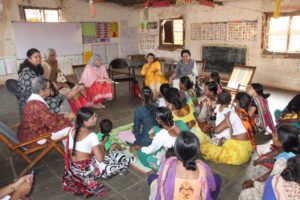
World Health Day is celebrated annually and each year is dedicated to raising awareness about critical health issues facing the world and mobilising efforts to address them.
The date of 7 April marks the anniversary of the founding of the World Health Organisation (WHO) in 1948. WHO is the United Nations agency that connects nations, partners and people to promote health, keep the world safe so everyone, everywhere can attain the highest level of health.
This year’s theme, ‘My health, my right’, was chosen to champion the right of everyone, everywhere to have access to quality health services, education and information, as well as safe drinking water, clean air, good nutrition, quality housing, decent working and environmental conditions and freedom from discrimination.
Objectives of World Health Day 2024
- Advocate for Universal Health Coverage: Highlight the need for accessible, affordable and quality health care for everyone, everywhere.
- Promote Health Equity: Address inequalities in health access and outcomes, particularly for the most vulnerable and marginalised populations.
- Encourage Healthy Behaviours: Foster awareness and action on living healthy lifestyles to prevent disease and improve quality of life.
- Strengthen Health Systems: Support the development of resilient health systems capable of meeting global health challenges and emergencies.
Aligning with Sustainable Development Goals
Celebrating World Health Day directly supports the achievement of Sustainable Development Goal 3: Good Health and Well-being. It emphasises the importance of good health as the foundation for prosperous and sustainable societies and highlights the interconnectedness of health with other SDGs, including reducing inequalities and fostering partnership.
Get Involved
Engagement in World Health Day is crucial for amplifying its impact. Individuals, organisations and governments can participate by organising events, leading health campaigns, sharing information and resources and advocating for policies that prioritise health for all. Collective action can significantly influence global health policies and practices, driving progress toward universal health coverage.
World Health Day is a call to action for everyone, everywhere. By participating in World Health Day, we contribute to a global movement towards a healthier, more equitable world for future generations.
Women’s rights are human rights
As Soroptimists we focus on issues that impact the health of women. Every person’s right to control their sexuality and sexual and reproductive health is linked to their human rights. You may know that sexual and reproductive health and rights are a cornerstone of the Beijing strategy which marked 25 years in 2020. We still need more investment in women and girls, to meet their specific health needs and accelerate equal rights for all. Today, sexual and reproductive health conditions remain one of the leading causes of mortality and morbidity for women and girls. Violence against women and girls is the most frequent human rights abuse worldwide.
Progress
Under the leadership of WHO, an increasing number of countries have made concrete investments to prevent and respond to violence against women. There is growing recognition of the importance of quality, comparable data capturing how woman and girls experience violence. The 5-year UN Women – WHO Joint Programme on Violence Against Women Data is working to strengthen collection, measurement, analysis, reporting and use of data across the world.
At a time, when globally several countries face challenges in access to comprehensive abortion care, India has taken a lead in safeguarding access to universal, safe and quality abortion care services for all women, and specifically for underserved populations. This will lead to a reduction in unsafe abortion-related and maternal mortality for the 253 million women and girls between 15–49 years of age in India. WHO worked closely with the Government of India to develop this vision, taking steps that will sustain, accelerate and mainstream access to reproductive health through health system or SAMARTH (which, in Hindi, means “empowered”).
Soroptimists in action
Poverty and lack of access to medical resources result in poor health. This is further complicated by illiteracy, lack of access to education, to finance and financial services and ability to own land.
Soroptimists are taking action to improve the lives and health of women around the world.
Soroptimists lobbied their MPs to seek improvements to the Domestic Abuse Bill.
Soroptimists supported the 16 days of activism highlighting the issue of violence against women.
Soroptimists raise funds to help with access to education for women and girls and provide microloans to help women entrepreneurs set up their own businesses.
Join us to find out more and how you can help.
Carol Infanti
Membership Officer, SI Medway and Maidstone.


